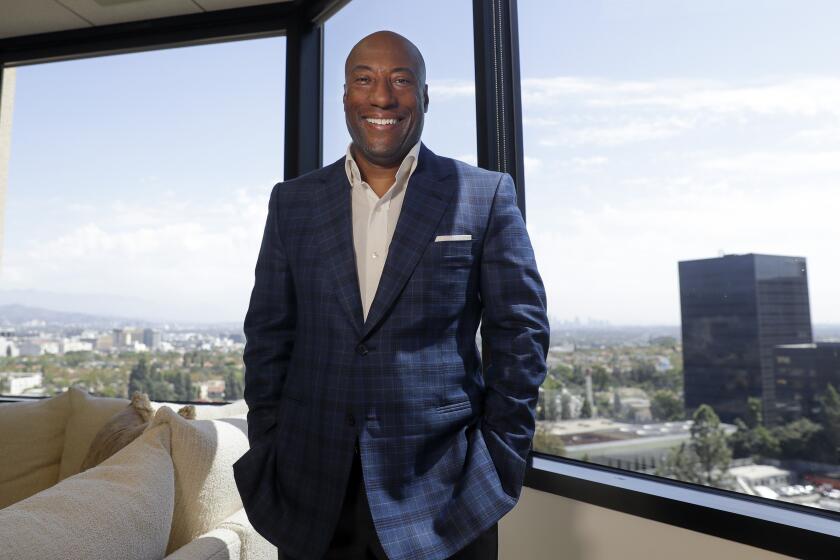FATHER-SON TEAM PLAYS AT DONTE’S
- Share via
In the absence of a calendar, one sure sign that a year is about to end is the celebration at Donte’s of Ted Nash’s birthday. Nash has played there every Dec. 29 for nine years, having first worked the room at the dawn of his career, when he turned 17.
The product of a noted musical family, the young saxophonist, now a New York resident, came home to celebrate the holidays with his family and to spend two nights at the club under unique circumstances.
For the first time he had his father, Dick Nash, on trombone. Also unprecedented was the appearance of the drummer Mel Lewis, who turned the tables by appearing as a sideman; normally, he heads a big band in New York with which Ted Nash has played for the past two years.
In the audience was Dick Nash’s brother, the other Ted Nash, who like his nephew is a master of the reed family. Both brothers were prominent name band and studio musicians in the ‘40s and ‘50s.
No rehearsal was needed. The quintet, with powerful assistance from Lou Levy at the piano and Jim Hughart on bass, immediately fell into a natural groove.
With his son alternating between alto and tenor saxes, Dick Nash wove in and out of the ensembles and traded solos with Ted on such standards as “A Gal in Calico,” Jobim’s “Triste,” and “Body and Soul.”
Ted Nash, like many second-generation jazzmen, has absorbed the elements of the bebop generation along with enough contemporary concepts to establish him, at 25, as an artist of redoubtable maturity. More surprising, to many, was the evidence his father offered of a facility and imagination for which he has rarely been given credit. It is clear that he grew up under the influence of J.J. Johnson and is a top echelon soloist in Johnson’s own class.
Aside from the brilliance of the senior Nash, the most striking performance was that of his son playing John Coltrane’s “Giant Steps” accompanied solely by Mel Lewis. Tenor sax and drums is an odd combination, but Nash and Lewis made it work with consistent energy and creativity. Instead of limiting their teamwork to this sentimental journey, the Nashes should record together, offering us yet another reminder that there is no generation gap in jazz.
More to Read
The biggest entertainment stories
Get our big stories about Hollywood, film, television, music, arts, culture and more right in your inbox as soon as they publish.
You may occasionally receive promotional content from the Los Angeles Times.










